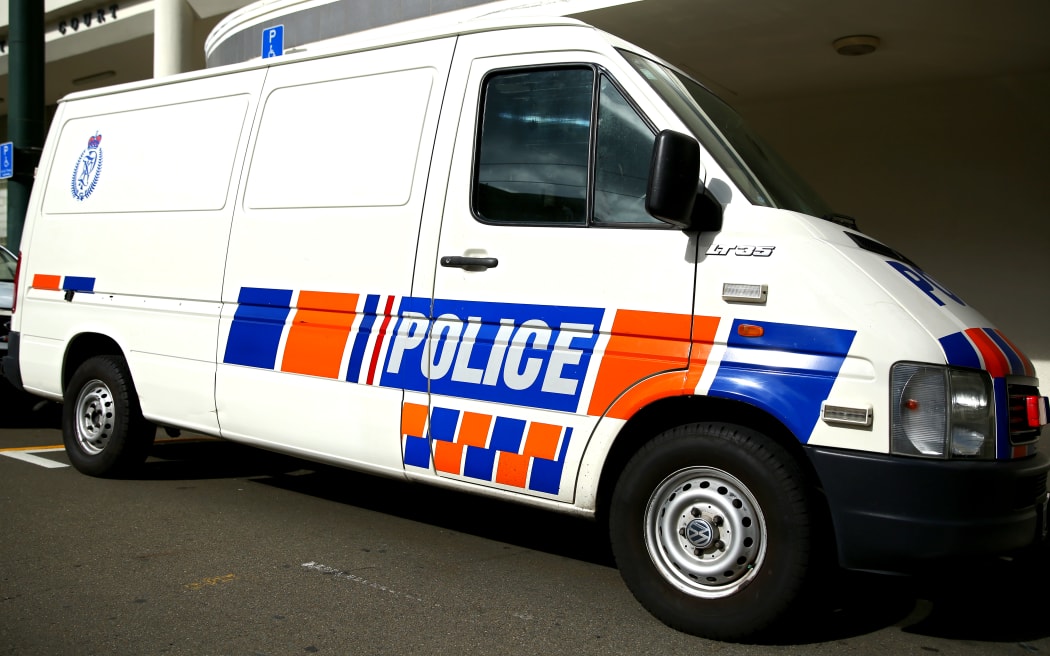The family of a 20-year old man who died in a police cell after hitting his head on concrete more than 100 times say they are considering legal action.

Sir David Carruthers Photo: RNZ / Alexander Robertson
In a report released today, the Independent Police Conduct Authority (IPCA) found the Counties Manukau police who arrested Sentry Taitoko in February 2014 failed to get him the urgent medical help he needed.
Read the full report into Sentry Taitoko's death (PDF, 805KB)
IPCA chairman Sir David Carruthers said Mr Taitoko should have had urgent treatment and constant monitoring.
He was found with his eyes rolled back and gurgling on the floor of his blood-smeared cell in the early hours of the morning, and died shortly afterwards.
Sir David said police failed in their legal duty of care but no-one was criminally negligent.
However, the family's lawyer, Barry Wilson, said the report showed police were negligent in failing to intervene.
"The family are very unhappy about that, clearly, and it should never have happened. None of that could have happened if he'd been properly monitored or, more importantly, if he'd gone to hospital in an ambulance as he should have done."
Mr Wilson said the family would consider legal action after the coroner's inquiry.
In a separate report, also released today, the IPCA criticised police over the treatment of people detained in cells, in particular those who have mental health issues. It said, in some cases, they have acted unlawfully.
Read the wider IPCA report into police custodial management (PDF, 933KB)
Police, lawyer - change needed
The police have apologised to the family and said they accepted the findings of the IPCA - but that no criminal charges would be laid.
They said they were trying to support Mr Taitoko's family and explain the police investigation to them.
The police also acknowledged the wider findings of the IPCA on how officers dealt with people in custody.
They said they were working to improve the way they handled intoxicated and mentally distressed people, including developing a national standard and improving training.
Acting Assistant Commissioner Barry Taylor told Checkpoint that police accepted the IPCA's findings but the police alone could not solve the problem.
"It's a fine balance between leaving somebody in the community and placing them into our police cells. Our officers do the best that they can, taking into consideration all the circumstances at that time and unfortunately, yes, people still may be placed into police cells. There needs to be another solution."
Mr Taylor said police were working closely with the Ministry of Health and planned to have new protocols in place by the middle of the year.
Police Association President Greg O'Connor said police were not equipped to deal with such cases.
"When someone is violently out of control, the police are the agency of last resort. Police officers dropping someone in this condition off at hospital? No, they'll be very quickly back, because the hospitals don't have the facilities to deal with them either."

Ron Mansfield: "The next fatality will be effectively on their watch." Photo: RNZ / Kim Baker WIlson
High-profile criminal lawyer Ron Mansfield said the Government could not afford to ignore today's report into Mr Taitoko's death.
He said he had lobbied the Government for specialist units, where people with suspected mental illness, who may be intoxicated or under the influence or drugs, could be taken care of.
He said this report sent a clear message to the Government to act.
"[They] will not be able to afford to sit there and do nothing because the next fatality will be effectively on their watch so hopefully this report will drive real and substantive change and we'll have some improvements made, despite the cost."
Mr Mansfield said without change there would be more deaths in custody.
First report
The first IPCA report found Mr Taitoko died in the early hours of 23 February 2014 after being taken into custody at Manukau Police Station for breaching the peace.
Mr Taitoko was heavily intoxicated, had taken drugs and was acting in a way that posed a risk to himself.
The authority said police put him in a cell and periodically monitored him but took an hour to conduct a risk assessment.

Sentry Taitoko was taken into custody in February 2014 (file photo). Photo: RNZ / Alexander Robertson
During the night, they noticed him rolling on the ground and thrashing about.
Security camera footage showed him hitting his head on concrete walls and floor of the cell 83 times between 1.47am and 2.15am. Over the next hour, he hit his head another 31 times. He stopped acting violently a short time later.
His body was covered in grazes and the cell was covered in blood.
He was checked by police at 5.15am and they noticed the blood. They found he had short breathing and his eyes were rolling back in his head. An ambulance was called, but he was declared dead an hour later.
The IPCA found police breached their legal duty of care to Mr Taitoko in a number of ways.
Sir David said they should have immediately called for medical assistance, and should have had continuous monitoring. He said police failed to realise Mr Taitoko was having a reaction to drugs.
A doctor who had been called at 3am looked through the window but did not go inside. He said that Mr Taitoko was to violent to go to hospital.
Sir David said it was understandable police took that advice, but stressed he should have been taken to hospital earlier.
Second report
The IPCA also separately reviewed 31 complaints and incidents that had been referred to it over the past three years.
It raised particular concerns about the treatment of people with mental health issues.
Its report said people with mental health problems who have not committed a crime were often detained and taken to a police cell because they required a mental health assessment and there was no one able to do that.
"In some of the cases the authority examined, their detention by the police was unlawful," Sir David said.
"In other cases the person's initial detention was lawful, but they were subsequently detained for longer than the six hour period permitted by law."
He said police cells were entirely unsuitable for those in mental distress: "They are a harsh, noisy and uninviting environment."
Custody officers lacked skills and training at dealing with at risk prisoners showing signs of mental distress, he said.
Sir David said unless a person experiencing a mental health crisis was violent or posed a threat to others, police should not put them in cells.
"It is unacceptable that, in many police districts, this is the standard default inter-agency response to a public call for police assistance to deal with a person experiencing a mental health crisis.
"Police should not be left in the position of dealing with vulnerable and distressed people in this way. Other more appropriate interagency responses must be developed."
Sir David also said that risk assessments were not done robustly or in a timely fashion.
"As a result, there are too many instances of attempted suicide, self-harm, and failures by police to seek attention for those that present with medical conditions."
Sir David conceded that cell blocks were busy and often staff were dealing with difficult or uncooperative people that they did not have the skills or training to deal with appropriately.
IPCA's recommendations:
- Systematic and consistent training of officers working in custodial facilities, with specific guidance to custody staff about the monitoring of prisoners.
- That police work with the Ministry of Health and other agencies to minimise the number of mentally impaired people taken into custody for mental health assessment, and improve methods for dealing with intoxicated people.


